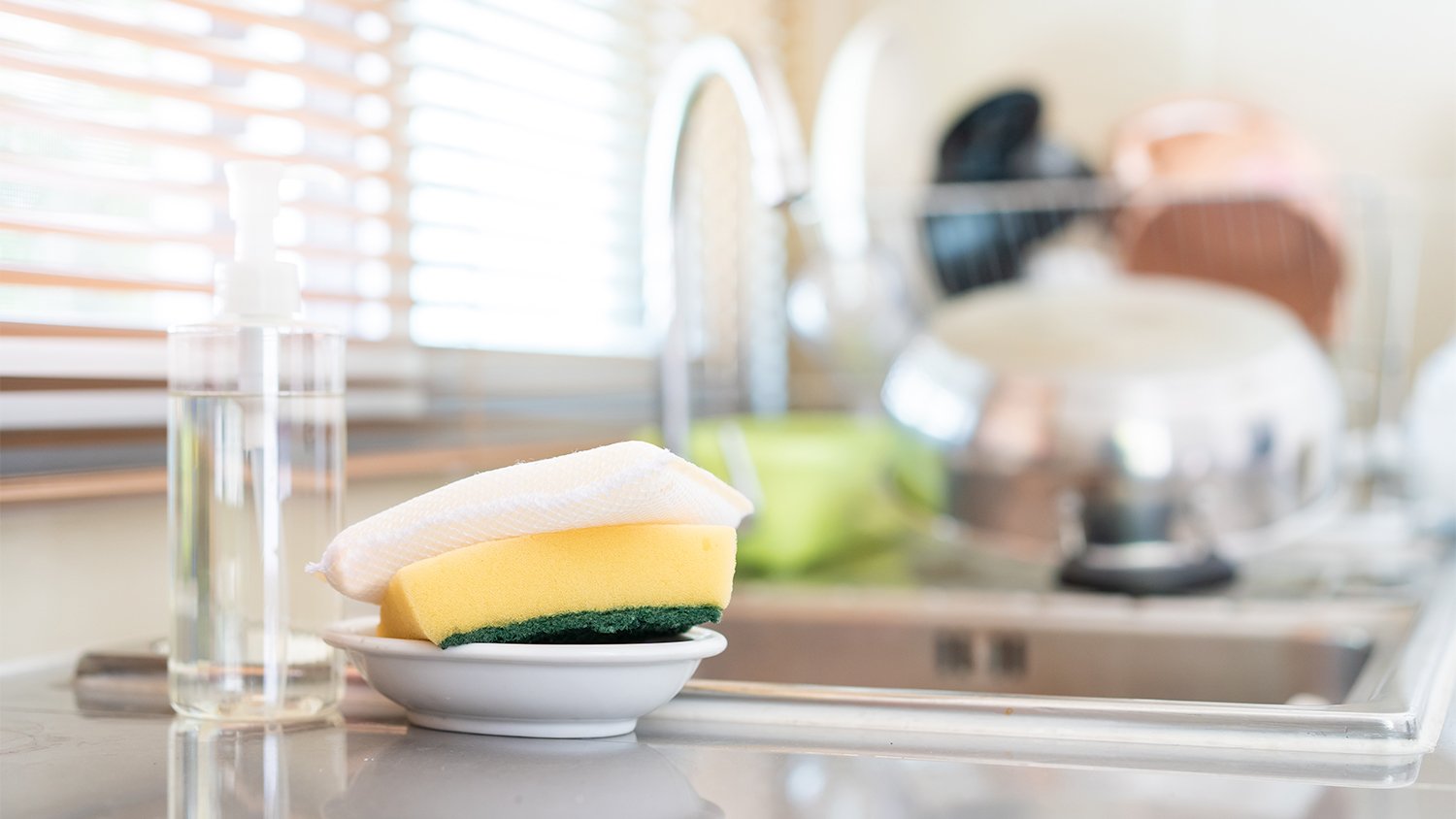
Clean walls are an important part of a well-kept house. Use this wall cleaning cost guide to see what it would cost to hire a professional to get the job done.
If you want to keep your kitchen clean and gleaming, then you need to know tho to clean your sponges and dish scrubbers and when to change them


Your home is your family’s sanctuary, and you want to keep it healthy and beautiful. But did you know that the humble little dish sponge, cloth, or scrubber that seems to find its way onto nearly every surface of your kitchen can be a breeding ground for germs and bacteria?
So, to prevent cross-contamination of your dishes, cookware, and other surfaces when tidying up your kitchen, you should know how to clean your scrubbing tools properly, as well as when you should replace them.
No matter how on point your cleaning regime may be, it just might not occur to you that your cleaning tools might themselves need a good cleaning. But the reality is that those very implements that you thoughtlessly grab each day to wipe down your dishes, countertops, and tables can spread germs instead of eliminating them.
In fact, both kitchen sponges and dishcloths excel in incubating bacteria. And that can lead to serious health issues for you and your family. But if you know how to clean your scrubbing tools properly, and when it’s time to let them go, you can ensure that your kitchen doesn’t just look clean—it is clean.
This article will show you how to clean and when to change your cleaning tools by type.

Sometimes it seems you can’t have a kitchen without having a kitchen sponge. But as convenient as they are for cleaning, they’re also notorious bacteria breeders. Not only do you have a warm, damp environment, but you have all those little nooks and crannies inside the sponge where germs can proliferate.
To keep your sponges clean, you should throw them in the dishwasher every cycle. If you don’t have a dishwasher, then you should wash your sponges yourself after every use, using a combination of bleach and water heated to at least 140 degrees Fahrenheit.
But even with daily cleaning, you’ll still need to replace your sponge frequently. Ideally, you should replace your sponges after 30 uses. So, if you use the kitchen sponge on your dishes seven days per week, then your sponges need to be changed about once a month.
When it comes to bacterial growth, sponges usually get the greatest blame. But, in reality, dishcloths can be just as unhygienic because, like sponges, dishcloths stay in warm, moist environments and their surfaces are ideal for bacteria breeding. You should also replace cloths or dishcloths about every month or after about 30 uses.
To clean dishcloths, simply wash them on high heat in the washing machine after every use, and be sure to use bleach for the ultimate effect. You can also eliminate bacteria by hanging dishcloths in the sun to dry or by running them through the dryer. The heat exposure will kill off the bacterial nasties.
But, again, it’s a good idea to get rid of your dishcloths after about a month or 30 uses. This is a simple and inexpensive way to protect your family from bacterial and viral infections.
If you want the most hygienic choice, then straw brushes and bottle cleaners could be the way to go. Brushes are easier to clean and quicker to dry, which makes them less appealing environments for bacteria.
Clean them by tossing the dishwasher-safe models in the dishwasher. You can also soak the brush’s bristles in vinegar for a couple of hours and then rinse with hot water at least 140 degrees Fahrenheit. This will help loosen any remaining debris and kill any leftover bacteria. If necessary, you may have to use a fork to fully remove any particles that might remain.
Because brushes and bottle cleaners are more bacteria-resistant than cloths and sponges, you don’t need to clean or replace them as often. In general, you can get by with a weekly cleaning and with replacing every few months unless you notice signs that the bristles are starting to degrade.
Remember, though, that some surfaces may not be appropriate for straw brushes or bristle bottle cleaners. For example, cleaning your kitchen sink often requires a gentle touch. Some sink materials, such as stainless steel, natural stone, and granite, need to be treated with particular care to prevent scratches, scars, and other blemishes. In such cases, a soft cloth, properly disinfected, will probably be your best option.
From average costs to expert advice, get all the answers you need to get your job done.

Clean walls are an important part of a well-kept house. Use this wall cleaning cost guide to see what it would cost to hire a professional to get the job done.

Fans help us stay cool during hot days but are also magnets for dust and dirt. Follow this guide and learn how to clean a fan in your home.

Cleaning tasks can seem overwhelming. Learn how often you should clean your house to keep it looking its best all year long.

Mattresses can trap dust mites, sweat, and dirt. Learn how to clean a mattress to reduce allergens and extend the life of your mattress.

After a construction project, getting your home clean and living-ready is a top priority. Learn who to hire for post-construction cleanup for the best results.

Learn how to prepare for a house cleaner to ensure whoever you hire can do their job properly while you keep your home, family, and possessions safe.